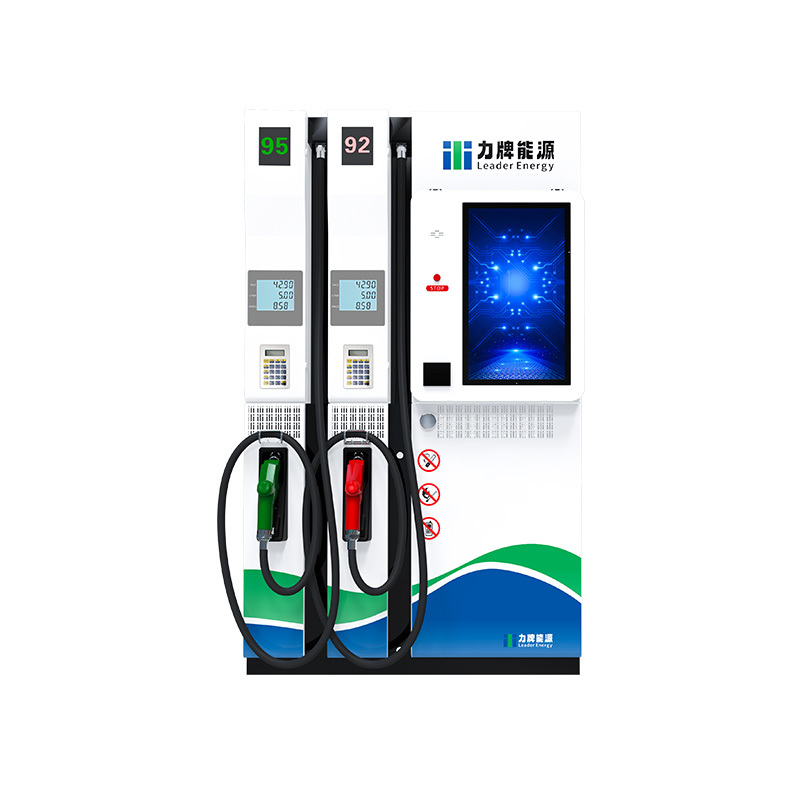Understanding Diesel Dispensers: Essential Equipment for Efficient Fueling
Diesel dispensers play a vital role in the fueling process, designed specifically for dispensing diesel fuel into vehicles and equipment. These dispensers are equipped with advanced technology that ensures accurate measurement, safety, and efficiency during operations. Understanding the components and functionalities of diesel dispensers can greatly enhance their effectiveness in fueling operation
Diesel dispensers play a vital role in the fueling process, designed specifically for dispensing diesel fuel into vehicles and equipment. These dispensers are equipped with advanced technology that ensures accurate measurement, safety, and efficiency during operations. Understanding the components and functionalities of diesel dispensers can greatly enhance their effectiveness in fueling operations.
One of the primary features of a diesel dispenser is its metering system. This system accurately tracks the volume of fuel dispensed, ensuring that customers receive the correct amount of fuel. Additionally, many modern dispensers include digital displays that provide real-time information, allowing both the operator and the customer to monitor the fueling process. This transparency fosters trust and reduces disputes regarding fuel quantities.
Safety is also a paramount concern in the operation of diesel dispensers. Most dispensers are equipped with various safety features, including automatic shut-off valves and emergency stop buttons. These features help to prevent spills and accidents, which are critical in maintaining a safe fueling environment. Furthermore, dispensers often come with leak detection systems that alert operators to any potential issues, enhancing overall safety.
Another important aspect of diesel dispensers is their adaptability to various environments. Whether it's a small fueling station or a large fleet fueling operation, diesel dispensers can be customized to meet specific needs. Their design can accommodate different fuel types, including biodiesel, which is becoming increasingly popular due to its environmental benefits.
Regular maintenance is essential for ensuring the longevity and reliability of diesel dispensers. Operators should establish a maintenance schedule that includes routine inspections and servicing of components such as hoses, nozzles, and filters. Keeping the dispensers clean and functioning properly not only prolongs their lifespan but also enhances the customer experience by ensuring efficient and hassle-free fueling.
Moreover, operators should stay informed about the latest technological advancements in diesel dispensers. Innovations such as contactless payment systems and remote monitoring capabilities are becoming increasingly common, offering added convenience for both customers and operators. Investing in updated technology can help fuel stations stay competitive in the growing market.
In conclusion, diesel dispensers are essential for the effective operation of fueling stations within the transportation industry. Understanding their components, safety features, and maintenance requirements can greatly enhance the efficiency and safety of fueling operations. As the industry evolves, staying updated on technological advancements will further improve the overall customer experience and operational efficiency.
One of the primary features of a diesel dispenser is its metering system. This system accurately tracks the volume of fuel dispensed, ensuring that customers receive the correct amount of fuel. Additionally, many modern dispensers include digital displays that provide real-time information, allowing both the operator and the customer to monitor the fueling process. This transparency fosters trust and reduces disputes regarding fuel quantities.
Safety is also a paramount concern in the operation of diesel dispensers. Most dispensers are equipped with various safety features, including automatic shut-off valves and emergency stop buttons. These features help to prevent spills and accidents, which are critical in maintaining a safe fueling environment. Furthermore, dispensers often come with leak detection systems that alert operators to any potential issues, enhancing overall safety.
Another important aspect of diesel dispensers is their adaptability to various environments. Whether it's a small fueling station or a large fleet fueling operation, diesel dispensers can be customized to meet specific needs. Their design can accommodate different fuel types, including biodiesel, which is becoming increasingly popular due to its environmental benefits.
Regular maintenance is essential for ensuring the longevity and reliability of diesel dispensers. Operators should establish a maintenance schedule that includes routine inspections and servicing of components such as hoses, nozzles, and filters. Keeping the dispensers clean and functioning properly not only prolongs their lifespan but also enhances the customer experience by ensuring efficient and hassle-free fueling.
Moreover, operators should stay informed about the latest technological advancements in diesel dispensers. Innovations such as contactless payment systems and remote monitoring capabilities are becoming increasingly common, offering added convenience for both customers and operators. Investing in updated technology can help fuel stations stay competitive in the growing market.
In conclusion, diesel dispensers are essential for the effective operation of fueling stations within the transportation industry. Understanding their components, safety features, and maintenance requirements can greatly enhance the efficiency and safety of fueling operations. As the industry evolves, staying updated on technological advancements will further improve the overall customer experience and operational efficiency.








